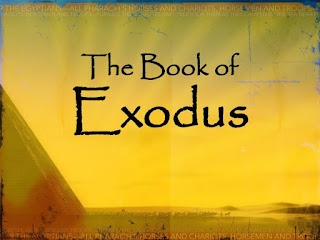Can we obey commands we don't understand? And if we do, is it a loss of independence, or is it a sign of love?
What is a chok?
The Torah portion we read on this past Shabbat, Parshat Bechukotai, begins like this:
"Because God said so"? What kind of reason is that?
For some thinkers, notably Soren Kierkegaard, obeying God's commandments when they don't make any sense is the most meritorious thing we can do. It shows a higher level of faith than carrying out instructions that make rational sense. Faith is much more of a Christian or Muslim thing than a Jewish one, however, and even those Jewish thinkers who stress faith also value applying human reason to our texts. In fact, their faith requires that they do so!
And let's be real: we are living in the 21st century. We have inherited the modern understanding that using one's intelligence is a good thing, a necessary thing, part of being a dignified and independent human being. Irrationality can be seen as threatening: a gateway to fascism. Unquestioning obedience can be seen as a throwback to a premodern age.
Even the main body of our parshah, the tochecha or warning about what happens when we don't obey, can sound dictatorial--or like a parent threatening a child with consequences. "Because I said so"? As the Jewish people, and as adults, haven't we outgrown messages like this? Why should we even study the chukim in Parshat Be'chukotai?
I suppose it depends on our understanding of what a parent is like.
My parents taught me to question
In 2024. the yahrzeit, or anniversary of death, for my father, Mel Fischman was the week before this parshah was read. My mother's birthday will be the following week, and Faye Fischman would have been 90 years old.
My parents were the generation that demanded reasons for everything. They were a puzzle to their hard-working immigrant parents, who may not have been able to keep from working on Shabbat--they were poor, and they had to make a living--but they knew that's what they were supposed to do. They kept kosher. They hosted the Passover Seder. And their children said to them, "If you can't explain it, we're not going to do it."
Still, my parents had very strong Jewish identities, including the Jewish cultural emphasis on education. They sent us to Hebrew school beginning around age nine or ten. Just as, when we got home from secular school in the afternoon, they asked, "Okay, kids, what did you learn today?", so did they ask the same question about Hebrew school. We learned together that some questions about Judaism do have logical answers! We began adding practices that made sense to us: first home rituals like getting together without fail for Friday dinner, then synagogue...which ultimately led to my being at Temple B'nai Brith and giving this d'var torah!
A God of Love
My parents taught me to question everything, even if they sometimes chafed at being the ones we interrogated. I think God does that too.
You might laugh. You might think Dennis is projecting Mel and Faye onto God, in some kind of Freudian sense. I admit the possibility. But I think it's the reverse. Mel and Faye learned what it mean to be a good parent from Judaism. They learned that questioning is a central part of the Jewish tradition, and they passed that value onto us.
Because of that, when my parents said, "Do it because I said so," it was so exceptional that I heard it in the context of all the times they had encouraged me to question. When they said, "Do this right now," I trusted that they understood my situation, and that they had my good in mind. Sure, like any adolescent I rebelled in major ways, and I used their authorization to question everything as my license to decide and act independently. When I did obey them, however, it was an act of love. And remembering the times when I obeyed them helps keep their love alive, even when they are no longer an imminent presence in my life.
Remembering God's "Because I said so," the chukim, can do the same, if we allow it. It can remind us of times in our biography, or periods in our communal history, when God seemed like a member of the household, and when we could trust God to remember us for good. We need those reminders.
In some ways, Rabbi Rachel Barenblat, the Velveteen Rabbi, says it better than I can. As she paraphrases Parshat Bechukotai in her poem "Either/Or," in 70 Faces: Torah Poems:
If you will follow my laws
and observe my commandments
I will grant you rain in its season
you will eat your fill
I will live in your midst.
I will untie your tangles.
Where there is rye bread
there will always be pastrami.
You and your mother will remain
on good terms, no matter what.
But if you do not obey
if you break my laws and spurn my rules
if you break my covenant
I will set my face against you
I will shatter all your glory.
I will leave your boat becalmed.
You will never find
a good parking space again.
You will poison the skies
and your fields will not feed you.
I can be infinitely more hostile
than you, but I won't be.
In the end you'll realize
I was here all along,
waiting for you.












